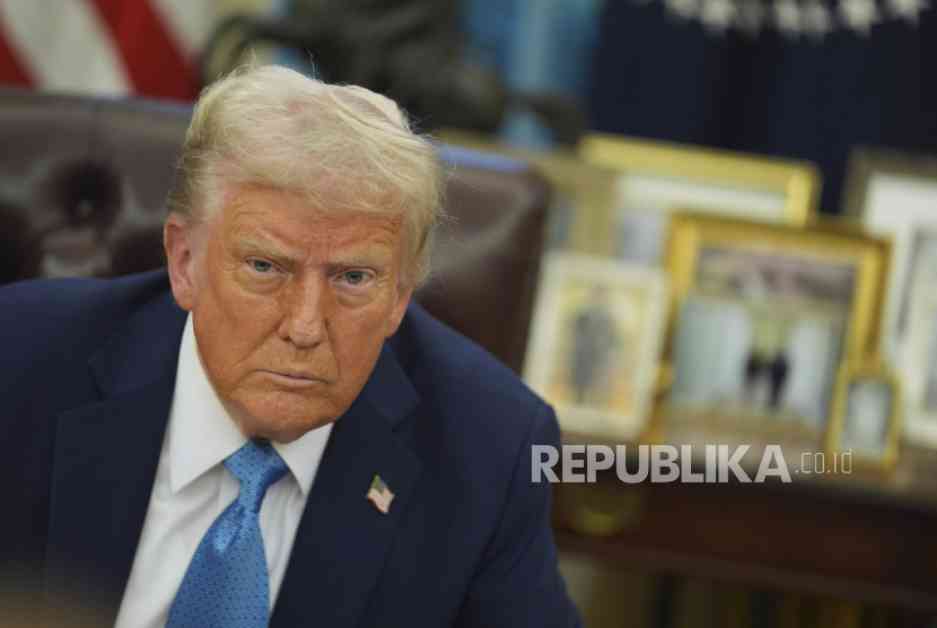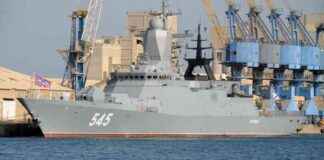In a bold move that has sent shockwaves throughout the global market, President Donald Trump has announced a sweeping set of tariffs on imports from three of America’s largest trading partners: China, Mexico, and Canada. The decision to impose a 25% tariff on goods from Canada and Mexico, along with an additional 10% tax on Chinese imports, marks a significant escalation in the ongoing trade war. Trump’s administration has justified these tariffs as a necessary measure to hold China, Mexico, and Canada accountable for their alleged role in fueling the opioid crisis and illegal immigration in the United States.
The announcement, made on Saturday, has already sparked retaliatory responses from Canada and Mexico, who have vowed to reciprocate with tariffs of their own. The White House, in a statement, emphasized that the tariffs were essential to address the flow of dangerous drugs into the country and to fulfill the promises made by China, Mexico, and Canada to curb these illicit activities. Trump’s decision to invoke the International Emergency Economic Powers Act (IEEPA) underscores his administration’s concern over the threat posed by illegal immigrants and deadly drugs that are claiming American lives.
The move to impose tariffs on these key trading partners is part of Trump’s broader economic vision, which he believes will stimulate the U.S. economy, protect American jobs, and increase tax revenues. By leveraging tariffs as a tool to influence policy decisions, Trump aims to not only address trade imbalances but also to assert America’s economic dominance on the global stage. The impact of these tariffs, however, extends far beyond mere economic considerations, as they are poised to shape the geopolitical landscape and test the resilience of international relations in an increasingly interconnected world.
### The Global Ramifications of Tariff Wars
As the tit-for-tat escalation of tariffs between the United States and its trading partners unfolds, the global economy braces for potential disruptions and uncertainties. The imposition of tariffs by the U.S. on Chinese, Mexican, and Canadian imports has far-reaching implications that extend beyond mere economic considerations. The ripple effects of these tariffs can be felt across industries, supply chains, and financial markets, with the potential to destabilize global trade and trigger a domino effect of retaliatory measures.
Experts warn that the escalating trade tensions could lead to a protracted trade war, with detrimental consequences for all parties involved. The imposition of tariffs not only threatens to disrupt established trade relationships but also raises the specter of a broader erosion of trust and cooperation among nations. In an increasingly interconnected world, where supply chains span continents and economic interdependence is the norm, the ramifications of protectionist measures can reverberate across borders, impacting businesses, consumers, and economies worldwide.
Amidst the escalating trade tensions, the need for diplomatic dialogue and constructive engagement becomes paramount to avoid further escalation and mitigate the risks of a full-blown trade war. Finding common ground and resolving disputes through negotiation and compromise is essential to preserving the stability of the global economy and upholding the rules-based international trading system. As the dynamics of global trade continue to evolve, navigating the complexities of trade relations requires a delicate balancing act that calls for strategic foresight, prudent decision-making, and a commitment to fostering mutual understanding and cooperation.
### Charting a Path Forward: Navigating Uncertainty and Building Resilience
As businesses and policymakers around the world grapple with the implications of escalating trade tensions, the imperative to adapt to a rapidly changing economic landscape becomes increasingly urgent. The uncertainty and volatility introduced by the imposition of tariffs underscore the need for strategic planning, risk management, and contingency measures to safeguard against potential disruptions and mitigate the impact of trade-related shocks.
In the face of heightened trade tensions, businesses are compelled to reassess their supply chains, diversify their sourcing strategies, and explore new markets to mitigate risks and capitalize on emerging opportunities. Adapting to the evolving trade environment requires agility, flexibility, and a proactive approach to navigate the complexities of global trade dynamics. By fostering innovation, embracing digital transformation, and cultivating strategic partnerships, businesses can enhance their competitiveness and resilience in the face of uncertainty.
Policymakers, on the other hand, are tasked with the challenge of striking a delicate balance between protecting domestic industries, promoting economic growth, and upholding international trade norms. By fostering dialogue, fostering cooperation, and pursuing multilateral solutions to trade disputes, policymakers can lay the foundation for a more stable, inclusive, and sustainable global trading system. In an era marked by unprecedented challenges and uncertainties, the imperative to build resilience, foster collaboration, and promote economic stability has never been more pressing.
The imposition of tariffs by the United States on China, Mexico, and Canada marks a significant escalation in the ongoing trade war, with far-reaching implications for the global economy and international relations. As the world navigates the complexities of escalating trade tensions, the imperative to foster dialogue, promote cooperation, and build resilience becomes paramount to safeguard against the risks of a protracted trade war and uphold the principles of free and fair trade. In charting a path forward, businesses, policymakers, and stakeholders must collaborate, innovate, and adapt to the evolving trade landscape to navigate uncertainty and build a more resilient and inclusive global economy.














